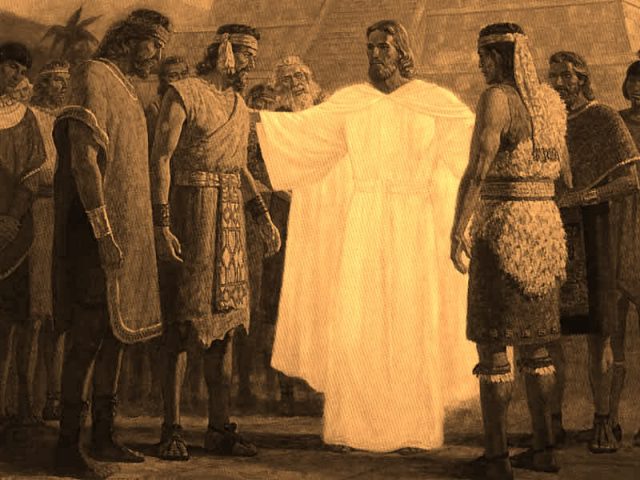Question
Gramps,
I’ve heard that Brigham Young said something about Jesus’ birth and honestly I don’t know what to think about it. I can’t find the quote right now, but it was something that Jesus’ conceiving was as natural as any other human, meaning that he was a literal son of Mary and Joseph. Do you know if he actually said that? Or maybe it’s just another anti-Mormon story.
Bambi
Answer
Bambi,
I doubt this will be the last time you’ll ever hear something like this, so I’m going to start by giving you some tips on what to do the next time it happens. Ask these questions as you go along:
First, “so what?” Pick up any publication and read something quoted in it. Then read the paragraph surrounding it. There is always some point that the quote is contributing to. If you are talking to someone who just throws a quote at you, ask “so what?” This will help you to know how they are reading the quote and why they are using it.
Second, “is this the first time I’m hearing it?” Think about how long you’ve been a member of the Church. If this is the first time you’re hearing a teaching like this, it’s because it’s not really a teaching of the Church.
Third, “does this quote actually mean what this person is saying?” Sometimes, understanding a quote properly means learning its full context. Context includes knowing the surrounding paragraphs, any issues the quote was in response to, and the time in which the quote was given.
Fourth, “what do I know, and what don’t I know?” Remember the core aspects of your testimony: Jesus atoned for your sins; God loves us; Joseph Smith is His prophet. I’m reminded of mathematicians and physicists who both use various equations on a regular basis. The mathematician rederives his equations every time he needs them. The physicist derives them once, then memorizes them. You can do the same thing with your testimony: remind yourself of the spiritual journey you went on to gain it; or get it and just rest assured that your testimony has indeed been given to you from God.
Now let’s apply this to the case you present me with. I have a pretty good idea of the quote you’re talking about, so I’ll provide it and move forward pretending you provided it. “The birth of the Saviour was as natural as are the births of our children; it was the result of natural action. He partook of flesh and blood—was begotten of his Father, as we were of our fathers” (Journal of Discourses vol 8:115).
1. “So what?” You are telling me that this means that Jesus was the literal son of Joseph and Mary.
2. “Is this the first time I’m hearing this?” Yes. I have been attending Sunday School since I was a little child, and I have never hear that Joseph was Jesus’ literal father. I have always been taught Jesus is the literal, physical son of God the Father. The reason I have never heard this taught in church is the simple fact that this is not a church teaching. So let’s take another look at that quote.
3. “Does this quote actually mean what you’re is saying?” Is Brigham saying that Jesus was the son of Joseph? Let’s take another look. “The birth of the Saviour was as natural as are the births of our children; it was the result of natural action” – so far, so good. Jesus is the natural son of his father. Now let’s continue and see who Jesus’ father is: “He partook of flesh and blood—was begotten of his Father, as we were of our fathers.” By itself, this quote is still just saying that Jesus is indeed the literal son of his father, but does not identify the name of his father. Do you see the difference in the quote between “Father” and “fathers”? When talking about Jesus’ Father, President Young uses the ‘F’ instead of ‘f’, which he uses for our fathers. Capitalized letters are used when referencing God, so it looks like everyone understood that Brigham was identifying God as the Father of Jesus.
4. “What don’t I know?” I don’t know that everything Brigham said was perfect and exact. “What do I know?” I know that Brigham Young was a prophet of God. I know that Jesus is the Son of God.
Gramps







